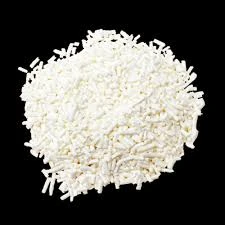
e101 food additive
Understanding E101 The Food Additive and Its Implications
In the realm of food science, food additives play a crucial role in improving the quality, safety, and visual appeal of our food. One such additive is E101, a food coloring known as riboflavin or vitamin B2. E101 stands out among other additives not only for its health benefits but also for its functionality in a variety of food products. This article explores its uses, benefits, and potential concerns.
What is E101?
E101, or riboflavin, is a water-soluble B vitamin that occurs naturally in food items such as eggs, green leafy vegetables, nuts, and dairy products. It is essential for various physiological functions in the human body, including energy production and the metabolism of fats, carbohydrates, and proteins. E101 is recognized for its bright yellow color, making it a popular choice for food manufacturers who wish to enhance the visual appeal of their products.
Uses of E101 in Food Products
E101 is commonly used as a food coloring in various products. You'll find it in baked goods, cheese, dairy products, and certain beverages. Its vibrant color can make a product more attractive to consumers, and its natural origin often gives it an edge over synthetic color additives. Moreover, riboflavin is beneficial in fortifying foods, contributing not just to their aesthetic appeal but also to their nutritional value.
In the food industry, E101 is often utilized in conjunction with other vitamins and minerals to create fortified products. For example, breakfast cereals may be enriched with multiple vitamins, including riboflavin, to enhance their health benefits. This multifaceted approach to food hybridization allows manufacturers to cater to health-conscious consumers looking for added nutritional value in their diets.
Health Benefits of E101
e101 food additive

Beyond its role as a coloring agent, riboflavin (E101) is vital for human health. It plays a significant role in energy production through the metabolism of carbohydrates, fats, and proteins. Moreover, it acts as an antioxidant, helping to protect the body from damage caused by free radicals. A diet that includes adequate amounts of riboflavin can promote healthy skin, bright eyes, and overall well-being.
Safety and Regulations
The safety of food additives, including E101, is of paramount importance. Regulatory agencies such as the European Food Safety Authority (EFSA) and the U.S. Food and Drug Administration (FDA) have deemed riboflavin safe for consumption at the levels typically found in food products. However, as with any additive, the concern arises only when consumed in excessive amounts or through high-concentration supplements.
Additionally, some individuals may experience allergic reactions or intolerances to certain food additives, including E101. While such cases are rare, they underscore the importance of consumer awareness regarding food ingredients. It is vital for consumers to read labels and understand what they are consuming, especially those with specific dietary restrictions or allergies.
Conclusion
E101, or riboflavin, exemplifies how food additives can enhance the nutritional profile and visual appeal of food products. With its natural origins and numerous health benefits, it provides a compelling option for food manufacturers seeking to cater to health-conscious consumers. While most people can safely consume riboflavin as part of a balanced diet, awareness and consideration of potential allergies are crucial.
As the food industry continues to evolve, the role of food additives like E101 will undoubtedly remain significant. By understanding the implications of food additives, consumers can make informed decisions about their dietary choices, ultimately leading to a healthier lifestyle. Thus, E101 shines brightly as both a vitamin and a food additive, proving that science and health can work together beautifully in our meals.
-
Understanding Synthetic Rubber OptionsNewsApr.27,2025
-
Trichloroisocyanuric Acid: Essential for Clean and Safe WaterNewsApr.27,2025
-
Sodium Dichloroisocyanurate: Key to Safe Water TreatmentNewsApr.27,2025
-
Sodium Acid Pyrophosphate: Essential in Modern Food ProcessingNewsApr.27,2025
-
Essential Water Treatment ChemicalsNewsApr.27,2025
-
Denatured Alcohol and Its Industrial UsesNewsApr.27,2025
-
The Versatile Uses of Sodium BicarbonateNewsApr.24,2025
Hebei Tenger Chemical Technology Co., Ltd. focuses on the chemical industry and is committed to the export service of chemical raw materials.
-

view more DiethanolisopropanolamineIn the ever-growing field of chemical solutions, diethanolisopropanolamine (DEIPA) stands out as a versatile and important compound. Due to its unique chemical structure and properties, DEIPA is of interest to various industries including construction, personal care, and agriculture. -

view more TriisopropanolamineTriisopropanolamine (TIPA) alkanol amine substance, is a kind of alcohol amine compound with amino and alcohol hydroxyl, and because of its molecules contains both amino and hydroxyl. -

view more Tetramethyl Thiuram DisulfideTetramethyl thiuram disulfide, also known as TMTD, is a white to light-yellow powder with a distinct sulfur-like odor. It is soluble in organic solvents such as benzene, acetone, and ethyl acetate, making it highly versatile for use in different formulations. TMTD is known for its excellent vulcanization acceleration properties, which makes it a key ingredient in the production of rubber products. Additionally, it acts as an effective fungicide and bactericide, making it valuable in agricultural applications. Its high purity and stability ensure consistent performance, making it a preferred choice for manufacturers across various industries.











